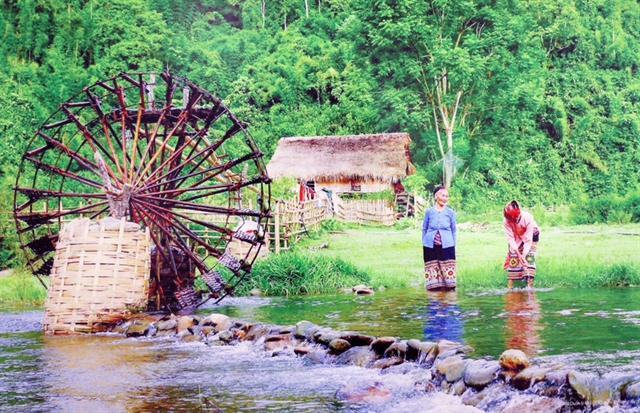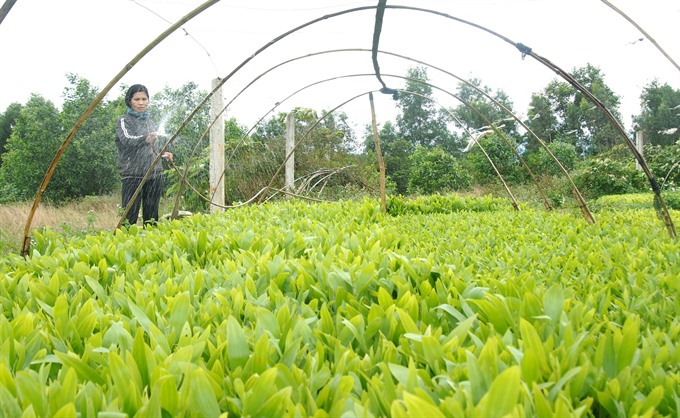 Environment
Environment

Many households in the central province of Quảng Bình plant local timbers in the forest instead of other kinds of trees such as cajuputs, and the way bring them billions of đồng and also help them protect local environment as well as maintain different kinds of local valuable trees.
 |
| Tree seedlings watered in a nursery in Quảng Bình Province. - VNA/VNS Photo Quang Quyết |
QUẢNG BÌNH – A former plunderer of valuable trees in the nation’s forests is now making a decent living from planting and nurturing them.
He is part of a growing trend in the central province of Quảng Bình where residents are planting trees that used to grow in local forests instead of easily harvestable ones like cajeput.
The longer-term strategy is helping them earn billions of đồng while better protecting the local environment and helping preserve different kinds of valuable local trees.
A four-hectare forest in Hà Village, Thanh Hóa Commune, Tuyên Hóa District, has valuable trees said to be facing a high risk of extinction, like ironwood, canary-wood and aloe wood.
The forest is the lifelong achievement of farmer Đinh Xuân Diễn, 78.
Diễn said that in 1997, after a long time of working as illegal logger, he quit the job, unable to witness anymore the destruction he and his peers were wreaking on the nation’s forest and the environment. At that time, the State was encouraging citizens to join a campaign of planting forests.
Diễn decided to take wild piece of land, which happened to be a national historic site, to plant trees and set up a farm.
Unlike like other people, Diễn did not plant trees like eucalyptus and cajeput, focusing instead on what used to grow traditionally in the area, like ironwood, canary-wood and aloe wood.
At that time, no person in the area could germinate these trees, so Diễn took saplings from the forest. He did this over many years, taking saplings from the forest and planting them on his land. His patience and care has seen his forest grow to more than 2,000 ironwood trees, 500 canary wood trees and thousands of other trees.
Diễn is the only man in the province with such a large collection of ironwood trees. Each of them has a diameter of about 50cm and are several dozen metres tall.
Diễn and his family have lived well for several years now on income from forestry products. He sells ironwood mushrooms for VNĐ2 million (US$90) per kilogramme, as well as fruits like grapefruits, oranges, jackfruits and bananas.
In 2014, Diễn earned VNĐ600 million ($26,600) from selling aloe wood.
“I could have harvested early if I had planted eucalyptus and other kinds of trees. But this would not be good for the environment. I planted local trees with the hope of giving back to the forest its natural beauty and maintaining different kinds of valuble wood trees that I used to destroy.”
Good value
Diễn is not the only person in the province that has shifted to planting and nurturing local trees.
Nguyễn Xuân Thiết lives in Hương Hóa Commune, Tuyên Hóa District. He converted 15ha of cajeput forest into one that was home to local trees including ironwood. The forest earns his family an income of several million đồng (VNĐ100 million equals $4,300) per year.
Nguyễn Tri Phương, head of the Tuyên Hóa District Agriculture and Rural Development Division, said that the time taken to plant and harvest local trees was double that of others, but the income it brought in many times more than industrial trees like cajeput and eucalyptus.
Planting local trees not only earned them good profits, but also protected the environment and preserved valuable trees that were in danger of being lost forever, he said. – VNS




